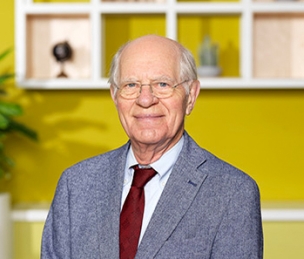Displaying 1 - 18 of 18
-
Edwards, J., & Levelt, W. J. M. (1993). The control group study. In C. Perdue (
Ed. ), Adult language acquisition: Cross-linguistic perspectives. Vol. I Field methods (pp. 173-185). Cambridge University Press. -
Hoeks, B., & Levelt, W. J. M. (1993). Pupillary dilation as a measure of attention: A quantitative system analysis. Behavior Research Methods, Instruments, & Computers, 25(1), 16-26.
-
Levelt, W. J. M. (1993). Die konnektionistische Mode. In J. Engelkamp, & T. Pechmann (
Eds. ), Mentale Repräsentation (pp. 51-62). Bern: Huber Verlag. -
Levelt, W. J. M. (1993). Accessing words in speech production: Stages, processes and representations. In W. J. M. Levelt (
Ed. ), Lexical access in speech production (pp. 1-22). Cambridge, MA: Blackwell Publishers.Abstract
Originally published in Cognition International Journal of Cognitive Science, Volume 42, Numbers 1-3, 1992 This paper introduces a special issue of Cognition 011 lexical access in speech production. Over the last quarter century, the psycholinguistic study of speaking, and in particular of accessing words in speech, received a major new impetus from the analysis of speech errors, dysfluencies and hesMions, from aphasiology, and from new paradigms in reaction time research. The emerging theoretical picture partitions the accessing process into two subprocesses, the selection of an appropriate lexical item (and "lemma") from the mental lexicon, and the phonological encoding of that item, that is, the computation of a phonetic program for the item in the context of utterance These two theoretical domains are successively introduced by outlining some core issues that have been or still have to be addressed. The final section discusses the controversial question whether phonological encoding can affect lexical selection. This partitioning is also followed in this special issue as a whole. There are, first, four papers on lexical selection, then three papers on phonological encoding, and finally one on the interaction between selection and phonological encoding. -
Levelt, W. J. M. (1993). Lexical access in speech production. In E. Reuland, & W. Abraham (
Eds. ), Knowledge and language: Vol. 1. From Orwell's problem to Plato's problem (pp. 241-251). Dordrecht: Kluwer. -
Levelt, W. J. M. (
Ed. ). (1993). Lexical access in speech production. Cambridge, Mass.: Blackwell.Abstract
Formerly published in: Cognition : international journal of cognitive science, vol. 42, nos. 1-3, 1992 -
Levelt, W. J. M. (1993). Lexical selection, or how to bridge the major rift in language processing. In F. Beckmann, & G. Heyer (
Eds. ), Theorie und Praxis des Lexikons (pp. 164-172). Berlin: Walter de Gruyter. -
Levelt, W. J. M. (1993). The architecture of normal spoken language use. In G. Blanken, J. Dittman, H. Grimm, J. C. Marshall, & C.-W. Wallesch (
Eds. ), Linguistic disorders and pathologies: An international handbook (pp. 1-15). Berlin: Walter de Gruyter. -
Levelt, W. J. M. (1993). Spreken als vaardigheid. In C. Blankenstijn, & A. Scheper (
Eds. ), Taalvaardigheid (pp. 1-16). Dordrecht: ICG Publications. -
Levelt, W. J. M. (1993). Timing in speech production with special reference to word form encoding. Annals of the New York Academy of Sciences, 682, 283-295. doi:10.1111/j.1749-6632.1993.tb22976.x.
-
Friederici, A., & Levelt, W. J. M. (1987). Resolving perceptual conflicts: The cognitive mechanism of spatial orientation. Aviation, Space, and Environmental Medicine, 58(9), A164-A169.
-
Friederici, A., & Levelt, W. J. M. (1987). Spatial description in microgravity: Aspects of cognitive adaptation. In P. R. Sahm, R. Jansen, & M. Keller (
Eds. ), Proceedings of the Norderney Symposium on Scientific Results of the German Spacelab Mission D1 (pp. 518-524). Köln, Germany: Wissenschaftliche Projektführung DI c/o DFVLR. -
Friederici, A., & Levelt, W. J. M. (1987). Sprache. In K. Immelmann, K. Scherer, & C. Vogel (
Eds. ), Funkkolleg Psychobiologie (pp. 58-87). Weinheim: Beltz. -
Levelt, W. J. M. (1987). Hochleistung in Millisekunden - Sprechen und Sprache verstehen. In Jahrbuch der Max-Planck-Gesellschaft (pp. 61-77). Göttingen: Vandenhoeck & Ruprecht.
-
Levelt, W. J. M., & d'Arcais, F. (1987). Snelheid en uniciteit bij lexicale toegang. In H. Crombag, L. Van der Kamp, & C. Vlek (
Eds. ), De psychologie voorbij: Ontwikkelingen rond model, metriek en methode in de gedragswetenschappen (pp. 55-68). Lisse: Swets & Zeitlinger. -
Levelt, W. J. M., & Schriefers, H. (1987). Stages of lexical access. In G. A. Kempen (
Ed. ), Natural language generation: new results in artificial intelligence, psychology and linguistics (pp. 395-404). Dordrecht: Nijhoff. -
Levelt, W. J. M. (1980). On-line processing constraints on the properties of signed and spoken language. In U. Bellugi, & M. Studdert-Kennedy (
Eds. ), Signed and spoken language: Biological constraints on linguistic form (pp. 141-160). Weinheim: Verlag Chemie.Abstract
It is argued that the dominantly successive nature of language is largely mode-independent and holds equally for sign and for spoken language. A preliminary distinction is made between what is simultaneous or successive in the signal, and what is in the process; these need not coincide, and it is the successiveness of the process that is at stake. It is then discussed extensively for the word/sign level, and in a more preliminary fashion for the clause and discourse level that online processes are parallel in that they can simultaneously draw on various sources of knowledge (syntactic, semantic, pragmatic), but successive in that they can work at the interpretation of only one unit at a time. This seems to hold for both sign and spoken language. In the final section, conjectures are made about possible evolutionary explanations for these properties of language processing. -
Levelt, W. J. M. (1980). Toegepaste aspecten van het taal-psychologisch onderzoek: Enkele inleidende overwegingen. In J. Matter (
Ed. ), Toegepaste aspekten van de taalpsychologie (pp. 3-11). Amsterdam: VU Boekhandel.

Share this page